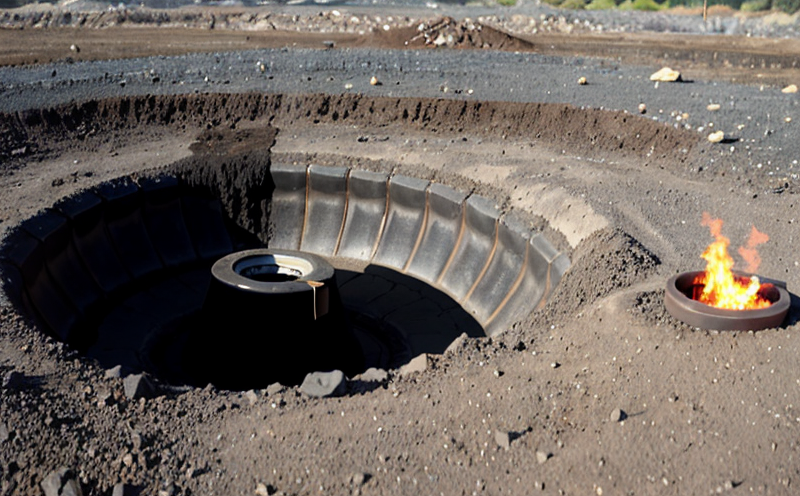ASTM D3175 Volatile Matter in Coal Testing
The ASTM D3175 standard is a critical tool used to determine volatile matter content in coal samples. This test evaluates the quantity of substances in coal that volatilize during heating, providing essential information for quality control and compliance within the mining sector.
Coal is one of the primary fossil fuels used globally for electricity generation, industrial processes, and transportation. The quality of coal influences its calorific value, combustion efficiency, and environmental impact. Understanding volatile matter content helps in optimizing fuel performance and reducing emissions during combustion processes. This standard ensures consistent and reliable testing across various coal types, supporting industries that rely heavily on accurate fuel specifications.
The ASTM D3175 test involves heating a precise amount of coal to a specific temperature over a set period, measuring the weight loss due to volatilization. The results provide valuable insights into the composition of coal, aiding in quality assurance and enabling informed decisions regarding procurement and processing.
For quality managers and compliance officers, this service is essential for ensuring that coal meets required specifications before being used in industrial processes or sold on the market. R&D engineers benefit from accurate testing to develop new technologies aimed at improving fuel efficiency and reducing environmental impact. Procurement teams rely on consistent test results to make informed decisions about supplier selection.
The ASTM D3175 standard is widely recognized and utilized globally, contributing to uniformity in coal quality assessment practices across different regions and industries. Compliance with this standard enhances the reputation of mining companies by ensuring their products meet international quality benchmarks.
Why It Matters
The accurate determination of volatile matter content using ASTM D3175 is crucial for several reasons:
Enhanced fuel efficiency: Understanding the volatile component helps optimize combustion processes, leading to more efficient use of coal resources.
Better environmental performance: Reducing volatilization during combustion can lower emissions and improve air quality.
Improved product quality: Consistent testing ensures that coal meets specified standards, enhancing its value in the market.
Cost savings: Accurate testing reduces waste by identifying substandard materials early in the supply chain.
In summary, ASTM D3175 plays a pivotal role in maintaining high standards of coal quality, contributing to sustainable practices and economic efficiency within the mining industry.
Customer Impact and Satisfaction
Enhanced trust: Consistent test results build confidence between suppliers and buyers.
Improved operational efficiency: Accurate data supports better decision-making throughout the supply chain.
Cost reduction: By identifying issues early, customers avoid unnecessary expenses associated with poor quality coal.
Clients who engage in ASTM D3175 testing receive reliable and repeatable results, ensuring they can make informed choices about their procurement strategies. This service directly contributes to the satisfaction of our clients by providing them with the tools necessary to maintain high-quality standards across their operations.
Use Cases and Application Examples
| Use Case | Description |
|---|---|
| Coal Quality Assurance | Determining the volatile matter content helps in maintaining consistent quality across batches of coal. |
| Product Development | R&D teams use ASTM D3175 to identify optimal fuel blends for specific applications, such as power generation or steel production. |
| Supplier Evaluation | Buyers use this test to evaluate the quality of coal supplied by different vendors, ensuring compliance with specified standards. |
| Emissions Control | Absorbing volatile matter during combustion can significantly reduce greenhouse gas emissions, contributing to environmental sustainability goals. |
These use cases demonstrate the versatility and importance of ASTM D3175 in various aspects of coal testing. By applying this standard, mining companies can ensure they meet regulatory requirements while also enhancing their operational efficiency and environmental performance.





